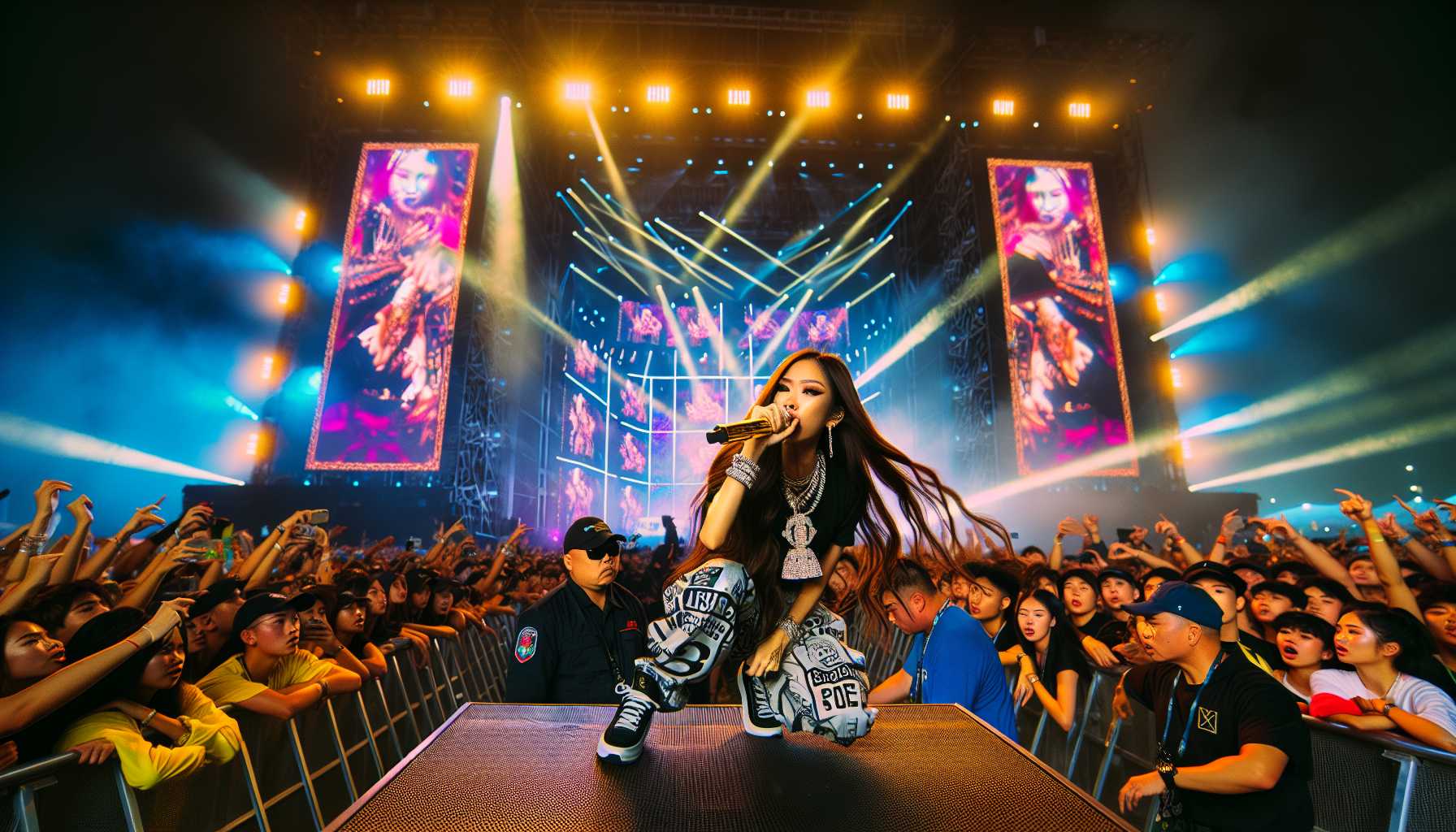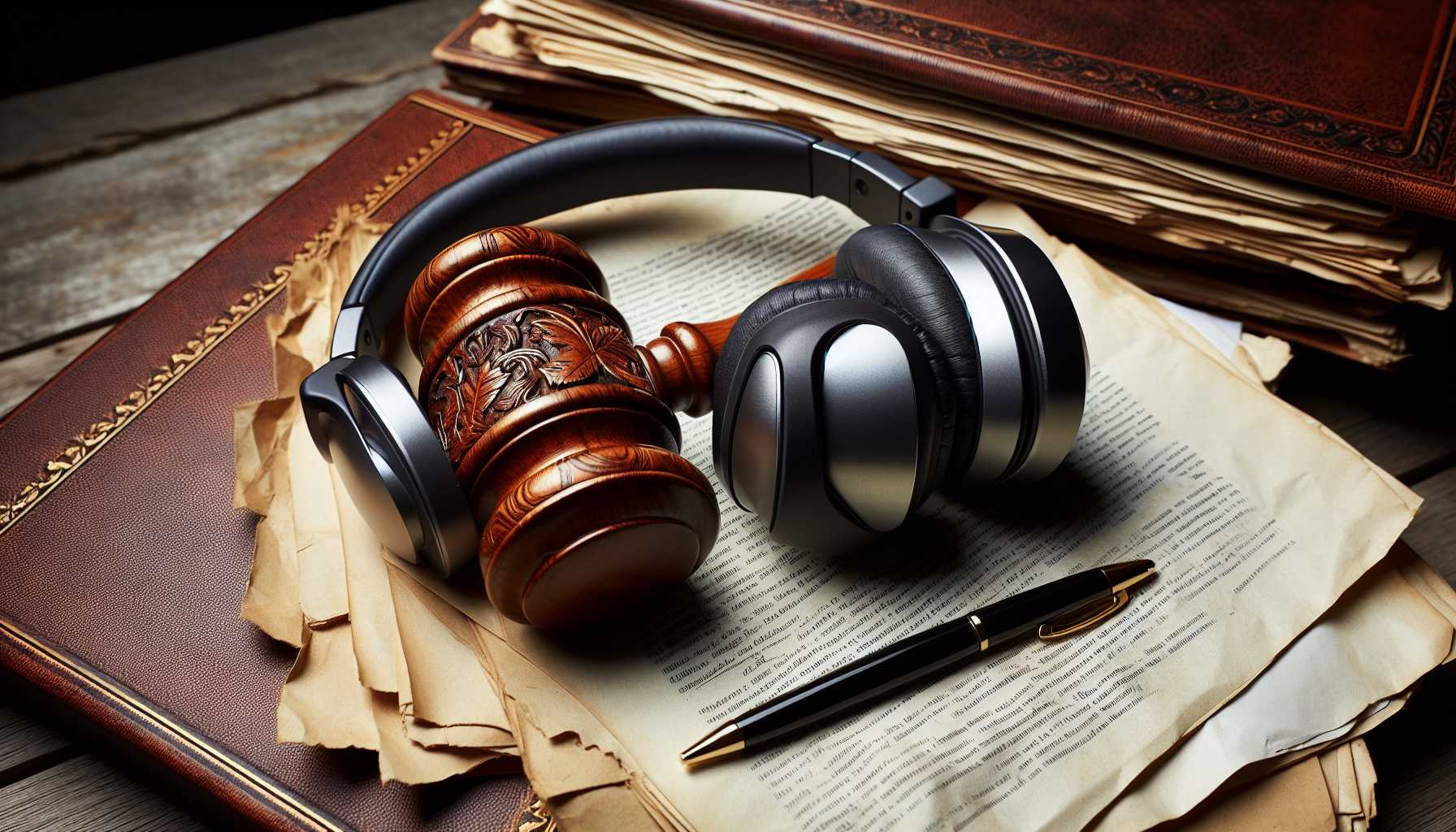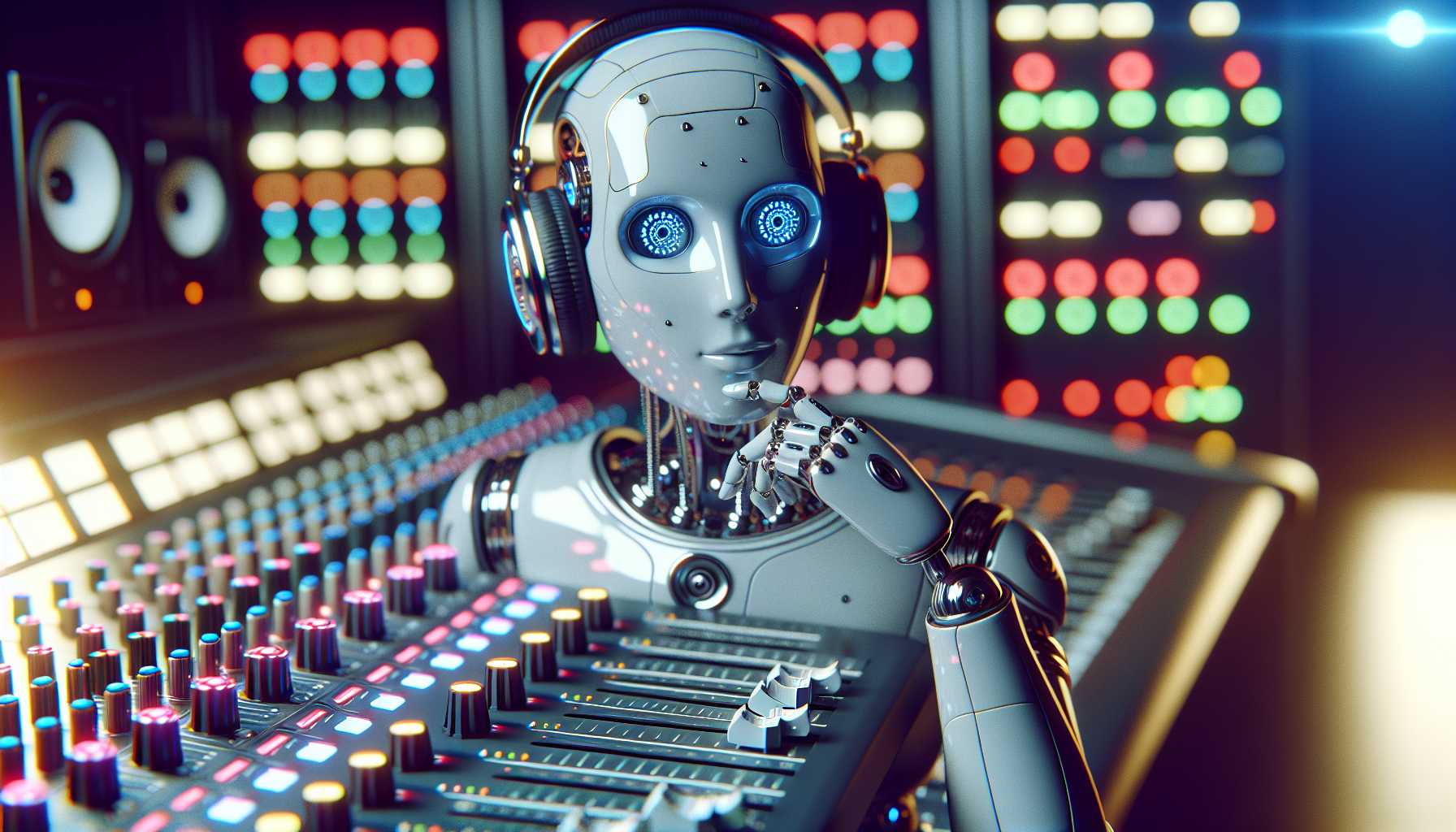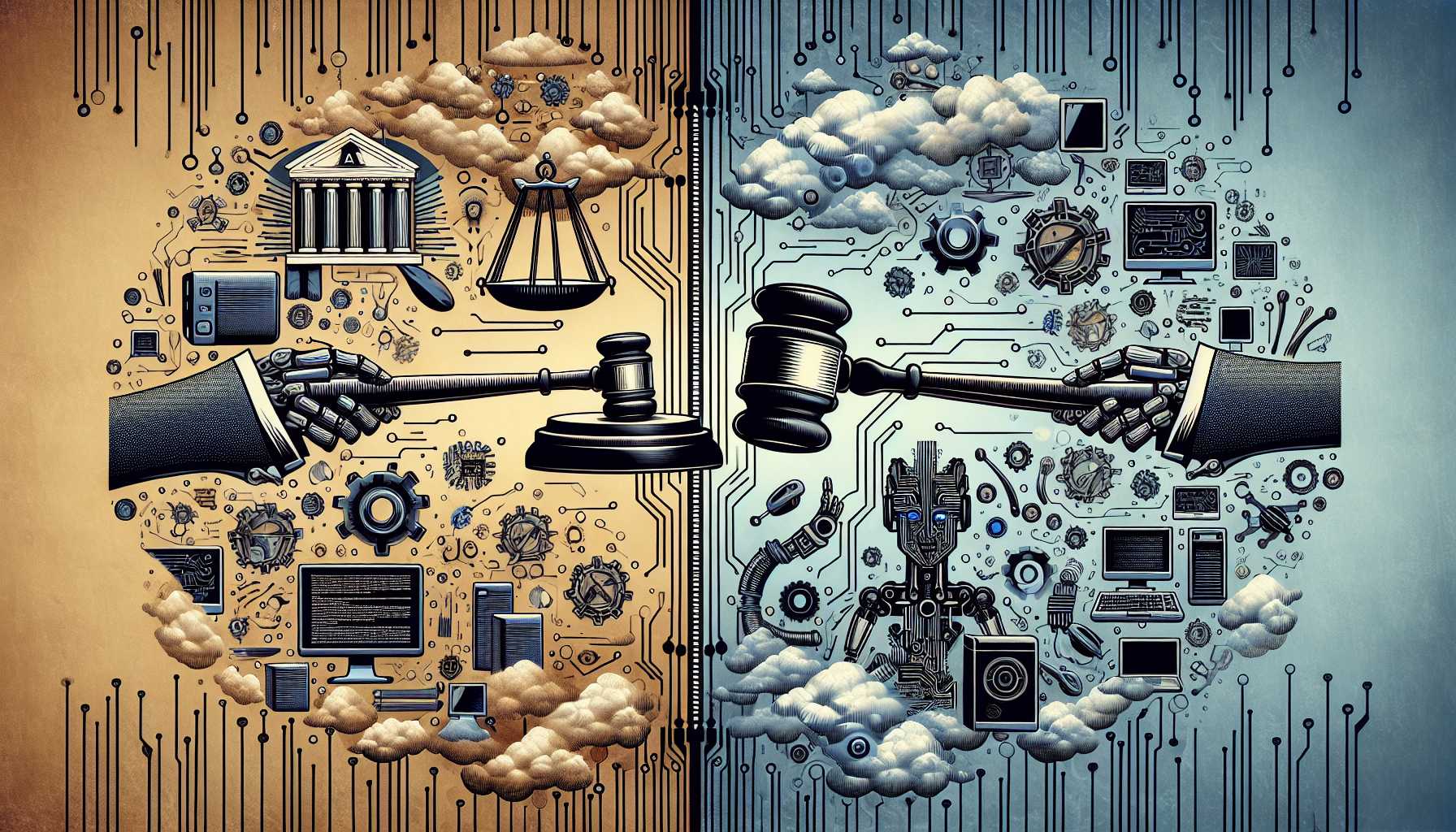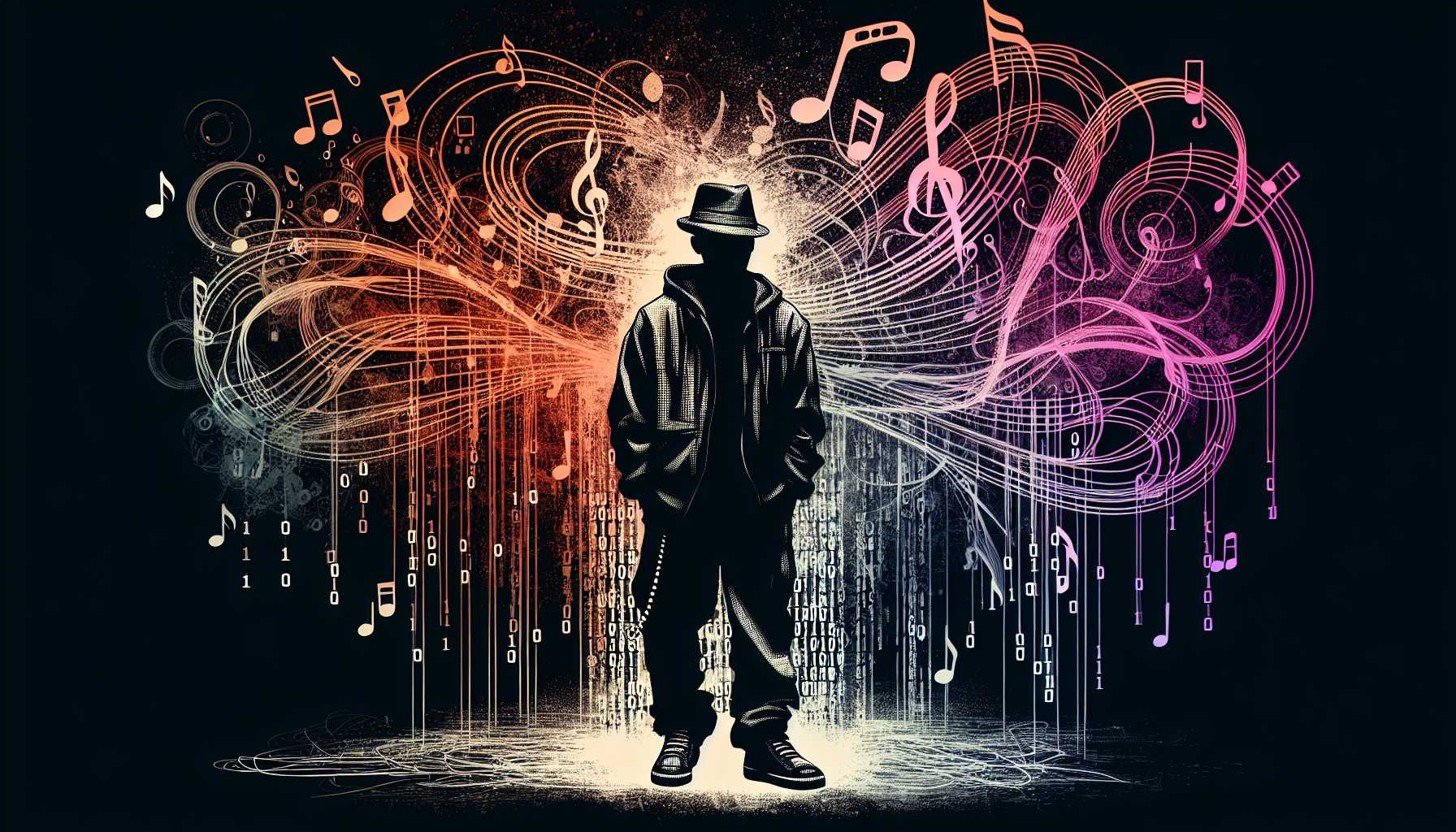The A.I. Rap Beef: Drake, Tupac, and the Future of Music
The high-stakes world of rap beefs has collided with cutting-edge technology, igniting a debate that resonates through the atriums of music, intellectual property, and artificial intelligence. Drake, the Canadian powerhouse of hip-hop, recently dropped a bombshell in the form of a diss track that challenged the boundaries of artistic creation and legal rights. Let me take you on a journey through the intricacies of this tech-infused music feud, where algorithms rap battles, and the fight for legacy protection all play starring roles.
The A.I. Ones for the Books
At the heart of the scuffle is ‘Taylor Made,’ a track where Drake reps his lyrical prowess against Kendrick Lamar, another titan of the industry. But this isn’t your typical diss track. No, this one features posthumous verses from none other than Tupac Shakur and a guest appearance by Snoop Dogg – both fabricated by A.I. Sure, the internet loves a good rap beef, but when the verses are generated by artificial intelligence, it blurs the lines between tribute and trespassing, homage and overreach.
I can’t help but marvel at the sheer audacity it takes to resurrect legends through technology. It’s ambitious, it’s innovative, and yes – it’s hugely controversial. As a tech investor, I’m thrilled to see A.I. push the envelope, allowing us to hear voices we thought were lost to time. However, as a proponent of ethical tech use, I must ponder: where should we draw the line?
Legalities Looming Like Dark Clouds
Howard King, attorney for Tupac’s estate, is stepping into the ring, gloves on and ready to scrap, claiming the usage of Tupac’s vocalizations is a “blatant abuse of the legacy.” It’s a wake-up call for Drake, who has found himself the target of potential legal action for the ‘unauthorized use of Tupac’s voice and personality.’ The rapper’s estate is not here to play, expecting the removal of ‘Taylor Made’ from the digital world, or else.
Let’s not forget, this isn’t Drake’s first dance with A.I.-related controversy. Not so long ago, Universal Music Group had to step in and take down an A.I. version of Drake’s song that went viral. The landscape has clearly shifted, and artists – both living and departed – find themselves grappling with the replicating capabilities of A.I. technology.
Tech Jargon Jam: AI Music and Rights
For those uninitiated in the tech jargon jamboree, ‘Artificial Intelligence’ is our passport to a futuristic utopia where computers don’t just compute – they create. In music, A.I.’s role has evolved from mere suggestion engines to active creation. Algorithms can now mimic styles, compose melodies, and replicate voices. Quite literally, the ‘voices’ of artists like Tupac and Snoop Dogg can be digitally resurrected, tempting the fates of copyright and moral rights.
This is where legal jargon dances with technical terms. ‘Copyright infringement’ and ‘right of publicity’ are two headline acts in this intellectual property ballet. If you ‘sample’ someone’s work without permission, you’re stepping on toes. If you ‘replicate’ a voice, likeness, or style without consent, you might be slapped with a ‘cease and desist’. The lines, like Drake’s bars, are sharp, and crossing them can be costly.
Ripple Effects and Industry Implications
Behind every tweet, Instagram post, or news headline about Drake’s ‘Taylor Made’ track, there are bigger ripples. This situation begs the question: what rights do artists and their legacies have in this untamed wilderness of digital creation? Snoop Dogg’s relaxed reaction might suggest some artists are open to A.I. mimicry, but Tupac’s estate raises the counterpoint loud and clear. It’s a clash that mirrors the burgeoning discourse on A.I. ethics within technology at large.
As an industry insider, I see both opportunity and caution tape. These cases could set precedents, painting the guidelines for A.I.’s role in the creative industries. The implications stretch further than rap beefs or music – they touch every corner where A.I. may one day mimic, replicate, or innovate upon our work.
Artificially Intelligent or Intelligently Artificial?
There’s a charming audacity in using A.I. to stoke the embers of a musical vendetta, but let’s add a dash of scrutiny. A.I. isn’t just a drum machine with steroids; it’s a Pandora’s box that asks us to consider authenticity. Is an A.I. verse by Tupac ‘real’ Tupac? Can we call it ‘new’ music, or is it simply a technologically-mastered echo?
As an enthusiast of both hip-hop and technology, this melange fascinates me. We’re witnessing a convergence of culture and code, where each informs the other both creatively and legally. It’s a discussion laced with nostalgia for the days of simple samples and mixtapes while facing forward to a future where your next favorite artist might just be a clever line of code.
The blogosphere may be focused on the drama and the punchlines, but here, we prefer to dissect the tech nuances and legal implications. After all, when the beats drop and the posts erupt, we want to understand not just the ‘what’ but the ‘how’ and the ‘why’ behind A.I.’s latest verse in the ongoing saga of music and tech.
As we watch this story unfold, we stand at the crossroads of innovation and regulation, creativity and rights protection. It’s a narrative that’s as captivating as it is cautionary—for every lyricist, listener, and developer out there. If you’ve enjoyed this lyrical journey through the cross-pollination of hip-hop and high-tech, remember to keep the conversation going.
And stay tuned for further developments, as this narrative is far from its final bar.

